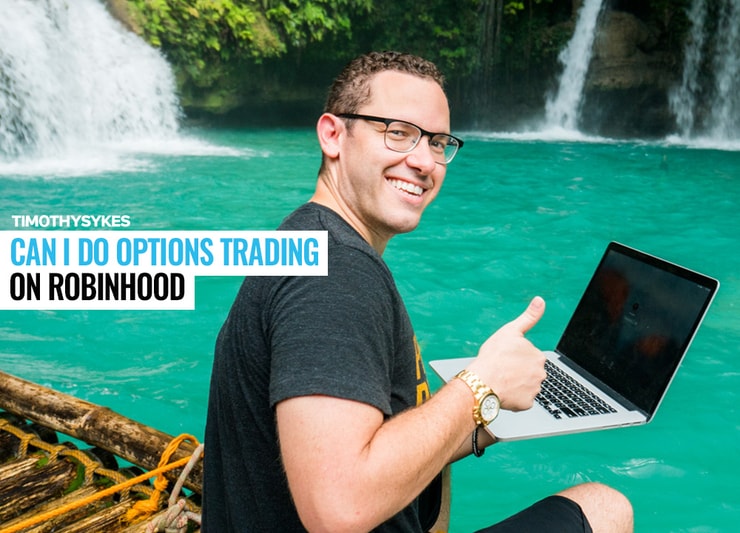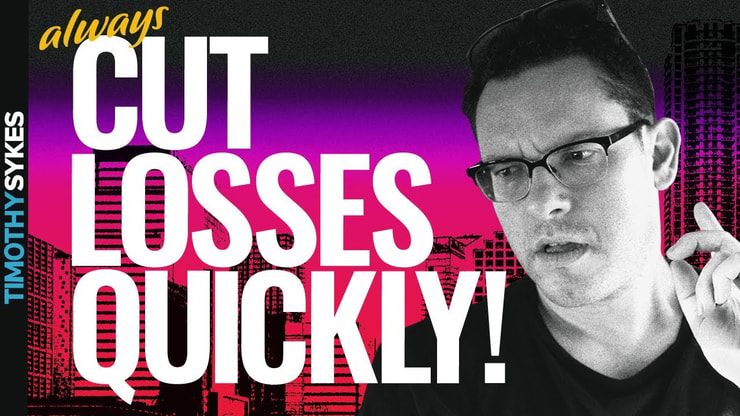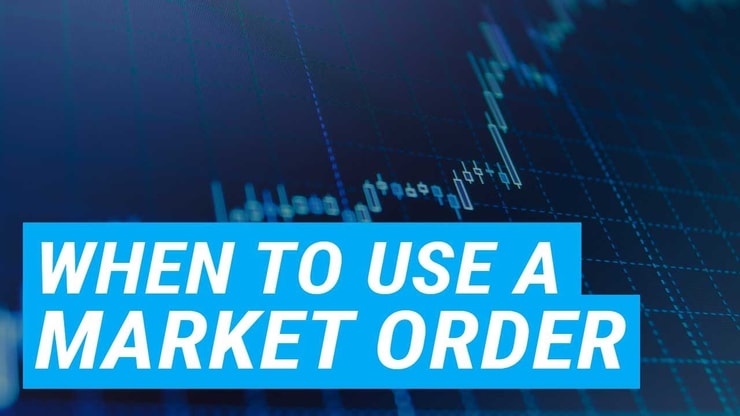The main question here isn’t whether you can — the answer is yes, you can trade options on Robinhood. The question is, should you trade options on Robinhood?
Read on to learn more about options trading on Robinhood!
Table of Contents
Trading on Robinhood

When you’re deciding on a broker, make sure they’ll fit your needs. There’s also no rule that says you can’t have accounts at multiple brokers, and trade certain strategies with the ones that are best suited to them.
Robinhood is easy to use, but it doesn’t have a wide range of features and lacks a trading simulator. It also has a reputation for service disruptions.
The dealbreaker for me as a penny stock trader is its block on most OTC stocks. As a rule of thumb, I want a stock trading app that doesn’t get in my way.
If you go into it with open eyes, Robinhood could work for you. Just make sure that it will be able to do everything you need for your trading strategy.
Can You Trade Options on Robinhood?

You can trade options on Robinhood if you meet its options trading requirements. If not, Robinhood will let you know where you fell short and allow you to try again.
The approval process protects small-time traders from the high potential for losses. Traders blowing up their accounts happens all too often in options trading.
Like other brokers, Robinhood has several levels of options trading approval. The thought behind this is that experienced traders can handle higher risk. It’s related to what I tell my students every day…
Smart traders know to cut losses quickly!
Factors to Consider When Choosing an Options Strategy
Options trading can lead to big gains, but are big risks as well. Trading options is complicated, and I like to keep things simple.
As usual, you should never trade randomly. You might need to test a few options strategies before finding the one or more that best suit you.
How to build good options trading strategy:
Do the Research
History is a great teacher. Learn chart patterns like the back of your hand.
Study Stock Price Movements
You can begin applying your knowledge by getting in a lot of screen time. That’s how you develop an instinctual feel for a stock’s price moves. That will lead to the type of trade ideas that options trading is built on.
More Breaking News
- Could Color Star Technologies Stake Its Place As The Next Big Thing?
- Argan Inc. Shares See Unexpected Movement: What’s Behind the Change?
- WIX Soars: Riding the Wave of Analyst Upgrades and Strategic Insights
Make Watchlists
A watchlist is the bedrock of all trading. Every trade you make should come from your watchlist.
Don’t copy somebody else’s watchlist, whether it’s Discord traders, friends, or even me. Do your homework, research each stock, and make your own watchlist. It’s the only way that you’ll become a self-sufficient trader.
That doesn’t mean you shouldn’t learn from other traders’ watchlists. You absolutely should! Just make sure that you’re paying attention to the thought behind a watchlist, not just copying stock picks. That leads to random trading, and random trading is one of the best ways to blow up your account.
Sign up for my NO-COST weekly watchlist here!
Set Reasonable Goals and Tight Risk
Your trading plan should be built with reasonable goals and tight risk. For most trades, I aim for a 5–10% profit, with a much smaller risk.
Tomorrow is another trading day, so cut losses as quickly as possible — don’t hold and hope.
I don’t trade options, but my former student Mark Croock does. In fact, I think he’s one of the best options traders on the planet. Options trading is a big part of how he’s built $3.9 million in lifetime profits.
Wanna be like Mark? Sign up for his Evolved Trader options trading mentorship today!
Good Till Canceled (GTC) vs Good For Day Orders (GFD) on Robinhood

I want my orders to execute when and where I plan. I’d rather an order not get filled than get filled at the wrong time.
Putting your orders on GTC and not watching your positions means you’ll take any result you can get. And what you get will usually be a loss.
If you leave an order on GTC, you can’t control its execution, and current market conditions can change when you’re not looking. Betting on a stock’s prospects and not paying attention to its actual chart is the best way for a trader to lose money.
It’s the same reason I don’t use market orders…
You can’t control how millions of traders behave. What you can control is how you react to changes in the market — which means you need to be watching the market and change your approach accordingly.
GFD orders are slightly better because the order will get canceled if it doesn’t execute by the market close. But the principle here is still the same — GFD is a set-it-and-forget-it type of deal. If you’re trading the type of volatile stocks I like to trade, this is a recipe for disaster.
Options Trading Strategies on Robinhood

When it comes down to it, the best brokerage firm is the one that fits your strategy and comfort level. Robinhood works for millions of options traders, and it can work for you if you know what you want to get out of it. If you’re looking for a platform with no learning curve, it might be good for you.
Just because Robinhood is easy to use doesn’t mean it will be easy to become profitable — it isn’t easy with any broker! The fact is, most traders lose, regardless of the app they use to trade. Becoming a self-sufficient trader requires years of study. It isn’t as easy as Robinhood makes you think.
The best way to develop your own options trading strategy is to learn from someone who’s been there before — that’s why I keep name-dropping Mark Croock and his Evolved Trader program. Learning from those who know more is the best shortcut through the trial and error ahead of you… which might be mostly error if you’re not careful!
Have you tried options trading with a Robinhood brokerage account? Share your experience in the comments below!
Can I Do Options Trading on Robinhood FAQs

For the main question — yes! As far as the “how,” read on…
How long does it take to get approved for options on Robinhood?
Robinhood options trading approval times vary. Usually, the process takes 24 to 48 hours. The broker will check your knowledge of options, trading experience, current employment, and whether you work in the financial industry.
How much money do you need for options trading on Robinhood?
There’s no minimum deposit needed to trade options on Robinhood. But a low account balance might signal that you don’t have enough experience for Robinhood to approve you for options trading. In addition, Level 3 options trading isn’t available for cash accounts, and options day trades will be constrained by the PDT for accounts under $25,000.
How do I trade options on Robinhood?
First, you’ll need to get approved to trade in the options market. Once that’s set, look up the stock ticker and hit the “Trade” button, then select “Trade options.” That’s it!




Leave a reply